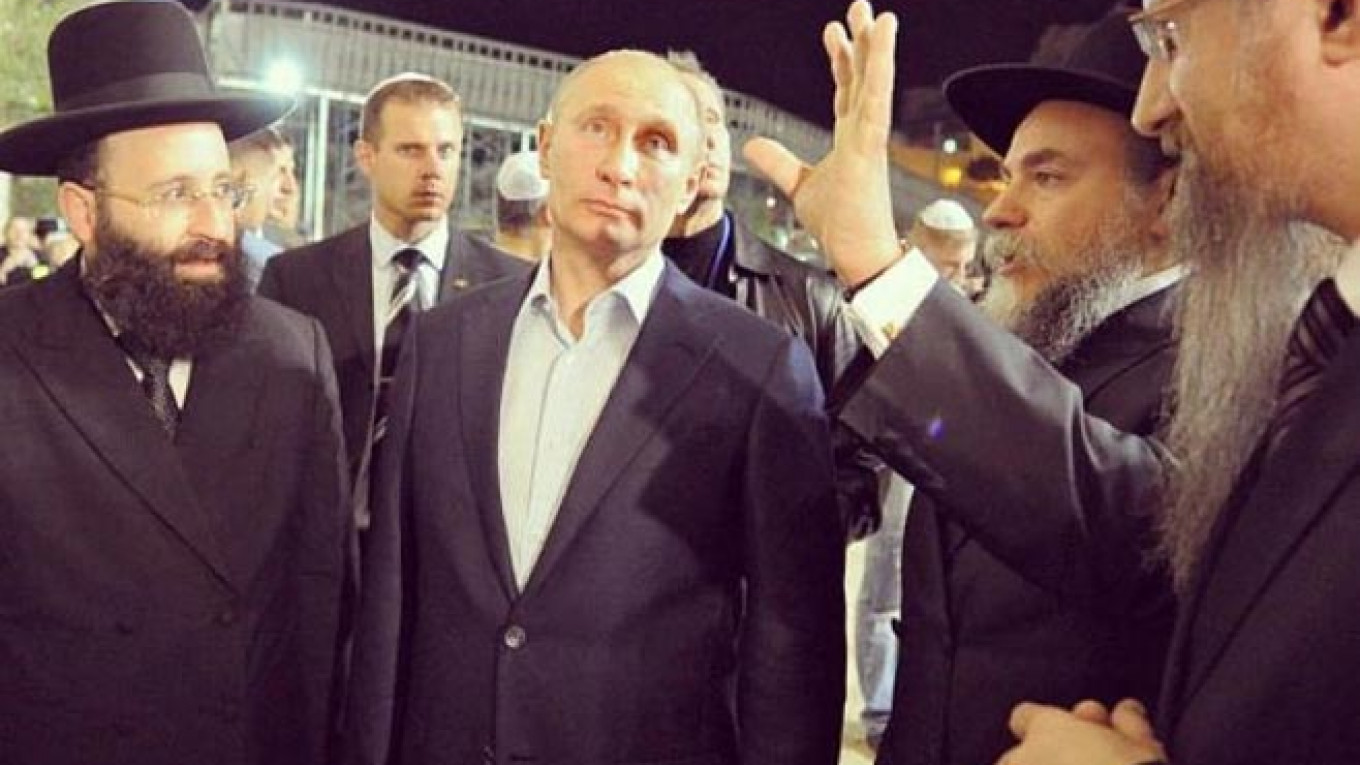The Kremlin's questionable claim of widespread anti-Semitism, which was used as partial justification for the annexation of Crimea, should not obscure the fact that President Vladimir Putin has genuinely championed the cause of Russian Jewry. This includes recognition and active support for a thriving Jewish community at home and close ties to Israel's top politicians, especially within the current ruling coalition.
More than 1 million Russians are now living in the Jewish state, giving Putin plenty of reasons to care about what happens there. If he is willing to throw caution to the wind and risk Western opprobrium on the presumption of threats to Jews and ethnic Russians, there are additional ways Putin can safeguard these strategic priorities.
As such, Putin should move against Iranian-backed terror networks around the world, and prepare a contingency for neutralizing Iran's nuclear facilities, in the event the P5+1 negotiations fail. Iran presents a strategic threat to Israel, and its terrorist clients target Jews in Israel and across the globe. These actions could even be coordinated with Washington in a way that helps re-establish Moscow's leadership credentials.
In addition, Putin should facilitate the orderly transition to a stable government in Syria. The world's largest humanitarian disaster is unfolding on Israel's doorstep. Unless Moscow intervenes, it is likely that any future Syrian regime will be hostage to unchecked terrorist forces eager to attack Israel's population centers. Putin is in a unique position to pressure or incentivize Syrian President Bashar Assad to step down and then help push Syria down the path toward peace and stability.
Putin can ensure that if Israel follows Russia's example by launching its own attack on Iran or taking unilateral actions to defend Jewish — and Russian ?€” citizens in the West Bank or anywhere in Israel, it can offer support in the United Nations Security Council. Using Putin's own playbook, Israel should be within its rights to undertake serious but necessary measures that will not win it many friends in the global arena. The wisdom of such decisions will have to be weighed by Israeli leaders as the need or opportunity arises.
During this period of Russian-Ukrainian tension, Putin should make every effort to avoid singling out Ukraine's Jewish industrialists and community leaders. There should be no need to pit Russian Jews against Ukrainian Jews, or to paint Ukrainian Jewish leaders as anti-Russian. This will not lead to positive outcomes for Jews anywhere, including within Russia.
The best way for Putin to lock in his status as the best friend of the Jewish people would be to remove the Jewish card from the table. He should continue asserting Russia's national interests vis-a-vis Ukraine, which he should do regardless of international reactions. Invoking Jewish concerns, whether worthy or not, does not do Jews any favors and will not win any world leaders to its side. But the real danger is that it may stigmatize Jews as his puppets.
Moscow will act in its country's best interests, regardless of what the West says or does. But there may be ways to do so while reducing the negative fallout ?€” for Russia, Jewish people and others worldwide.
Eli Verschleiser is a U.S. real estate developer, treasurer at the American Jewish Congress and president of OurPlace, a nonprofit organization that provides support, shelter and counseling for troubled Jewish youth.
A Message from The Moscow Times:
Dear readers,
We are facing unprecedented challenges. Russia's Prosecutor General's Office has designated The Moscow Times as an "undesirable" organization, criminalizing our work and putting our staff at risk of prosecution. This follows our earlier unjust labeling as a "foreign agent."
These actions are direct attempts to silence independent journalism in Russia. The authorities claim our work "discredits the decisions of the Russian leadership." We see things differently: we strive to provide accurate, unbiased reporting on Russia.
We, the journalists of The Moscow Times, refuse to be silenced. But to continue our work, we need your help.
Your support, no matter how small, makes a world of difference. If you can, please support us monthly starting from just $2. It's quick to set up, and every contribution makes a significant impact.
By supporting The Moscow Times, you're defending open, independent journalism in the face of repression. Thank you for standing with us.
Remind me later.


